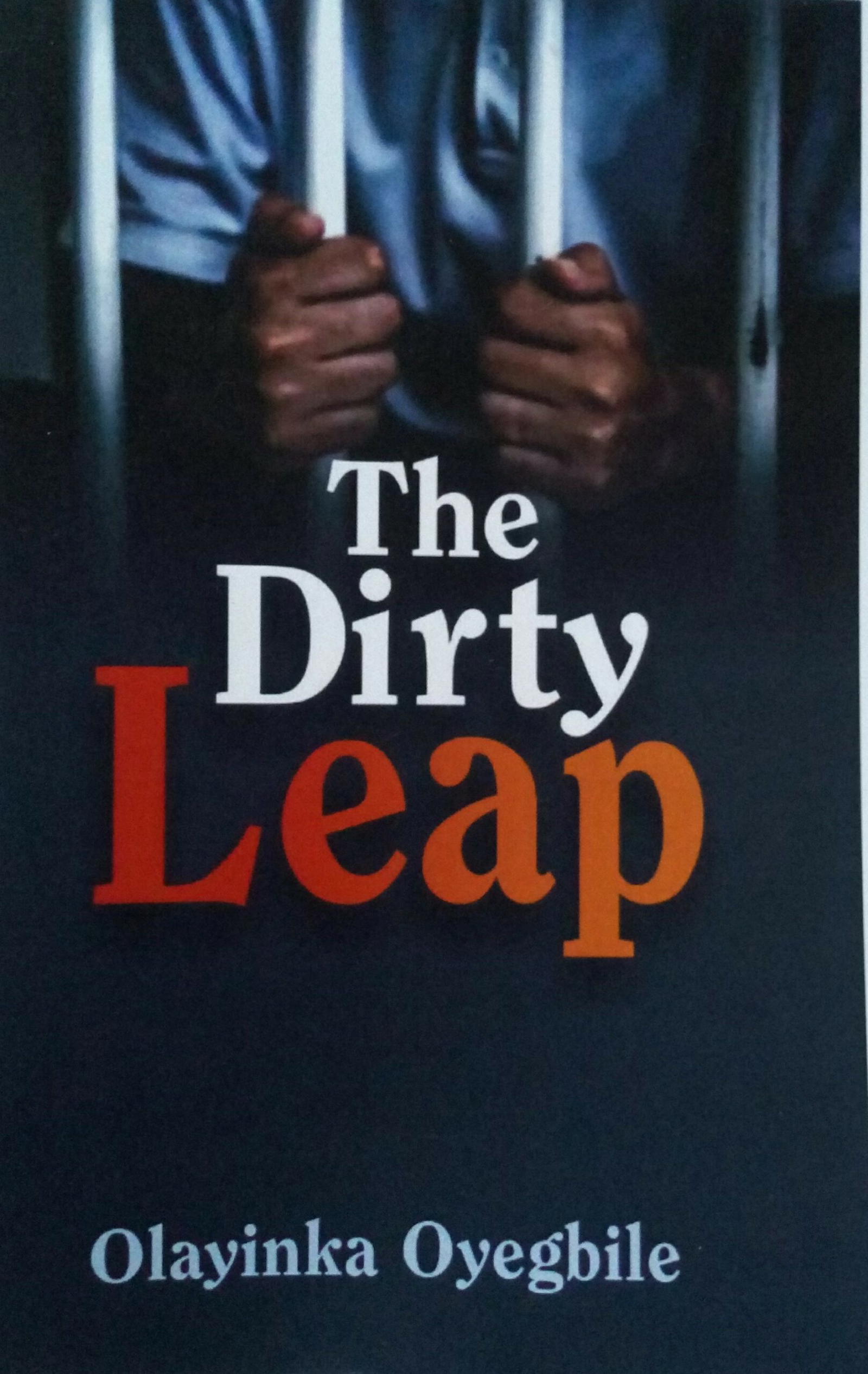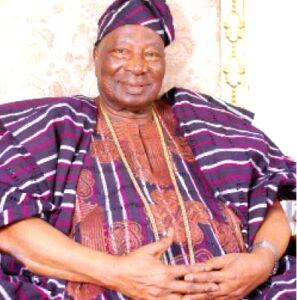
.

By Lola Akande
Olayinka Oyegbile is a journalist, writer, and public affairs analyst. He holds a doctorate in communication studies.
His career in journalism spans more than two decades during which he worked with The Guardian, The Punch, Daily Independent, TELL magazine, NEXT and The Nation newspapers among others. The Dirty Leap is his first published play.
The Dirty Leap dramatizes the unfortunate leap of a young, enthusiastic, energetic, promising, and fairly educated male Nigerian from the countryside to the city in search of better opportunities. Over the years, theorists placed the city and the countryside in binary opposition.
Consequently, some writers have developed powerful hostile attitudes to the village as a place of backwardness, ignorance, and limitation while viewing the city as a centre of learning, communication, and light.
The feelings of a majority of writers have yielded to the idea of the village as a natural way of life, of innocence and simple virtue, but of the city as a place of noise, worldliness, and ambition.
In Oyegbile’s The Dirty Leap, village life is characterised by backwardness, hunger, diseases, depression, hopelessness, and untimely death. However, to make a leap to the city is to undertake a mucky jump.
To the unwary villager who desires an escape from the drudgery of the village, the city is imagined as a place of limitless opportunities and progress. It is little wonder that from the beginning of the play in Movement One, Father tells his only son, Yusuf, that “I have heard so many things about the city.
I am allowing you to go because I want you to bring my own share of the fortunes that abound in the city” (15-16).
The despair in the village has been recently worsened by the government’s acquisition of a farmland which had been the only source of livelihood for Father who struggles precariously to raise and support his son and daughter after the death of his wife. The government had acquired the family’s land ostensibly to construct a dam for the village, but it had neither provided an alternative land for the family to continue with their farming nor paid compensation to enable them to buy another land.
As it is often the case in traditional society that tends to privilege the male over the female child, Yusuf is expected to be the family’s messiah, his father’s comforter and provider as well as his sister’s support.
Yusuf departs the village for the city with a promise to his father not only to visit the village regularly but also to always bring fortunes of the city as his father desires. As it happens, the reality in the city is far from the image it projects to the new entrant. Yusuf fails to find a job in the city. His childhood friend who becomes his host in the city has been surviving only by engaging in criminal activities.
Saidu asks Yusuf “Are you ready to do any job that will fetch us money?” Yusuf says “Yes, I am ready” (39) without asking what type of job.
Unfortunately for the duo, the city is not able to provide jobs for all its residents. But it has laws. Soon enough, Yusuf and Saidu run afoul of the law, and they are put in prison where Saidu has become a regular visitor.
Meanwhile, father and daughter wait with high expectation for Yusuf’s first visit to the village; but they wait in vain. Eventually, Father falls into depression and dies of anguish. Yusuf’s sister, Hadiza is distraught until what appears to be her saving grace occurs when one of her old friends who had relocated to the city, Sikira, suddenly visits and offers to take Hadiza to the city, again, for better opportunities. Sikira tells Hadiza that “the city is beautiful, not this ugliness that stares you in the face” (43).
Poor Hadiza, she is not aware that Sikira’s view of the city as beautiful is anchored on drug trafficking and perhaps, unintentional prostitution. Chief Arowolo, the chairman of the local government authority through which the government had taken over Hadiza’s family land without compensation is the same man who is operating as a drug baron in the city. He uses Sikira to courier hard drugs to different parts of the world.
He engages in illicit sexual affairs with her, has no plans of marrying her, yet, he forbids her from establishing a decent relationship with any other man like Tony who appears to be living a normal life in the city. Tony seems to be interested in having a relationship with prospects with Sikira.
Hadiza is desperate to leave the village as she is now all alone. Sikira takes Hadiza to the city and attempts to co-opt her into drug trafficking. However, Hadiza is saved when Sikira is arrested as they attempt to undertake what would have been their first trip together. Hadiza finds her brother, Yusuf who is now off jail, thanks to the warped judicial system that forgets him and his friend in prison until the intervention of a ‘friendly’ prison warder. At the end of the play, Hadiza narrates her near drug-trafficking experience to Yusuf.
She reveals that Chief Alhaji Arowolo, the local government authority chairman who had put their family in disarray in the village is the same man who had ruined Sikira’s life in the city and almost doing the same to her. Yusuf is understandably enraged. He vows to pay Arowolo a visit so as to “deal with him” (71).
Yusuf fails to provide details about how he intends to carry out his resolve. The reader wonders how Yusuf would possibly achieve his aim especially against the backdrop of Hadiza’s experience with Arowolo after Sikira’s arrest at the airport. “I was there to tell him what happened to us at the airport but he kicked me out and sent his dogs to chase me out … (70).
Without a doubt, Oyegbile’s play is a useful addition to the body of Nigerian literature which has explored and reflected on the peculiar social, economic, political, cultural, and intellectual experiences of Nigerians since pre-independence. In the drama genre, The Dirty Leap reminds the reader of Femi Osifisan’s play Once Upon Four Robbers which places the machinery of oppression in human society at the doorstep of man. Osofisan demonstrates convincingly the intricate relationship between drama and society; and insists that man is his own oppressor.
It is only proper, therefore, that Oyegbile dedicates his play to the distinguished dramatist and proclaims Osofisan as his “teacher without borders” (5). Also, by not resolving the problem at the end of The Dirty Leap, perhaps, Oyegbile is deliberately modelling this ‘teacher’, Osofisan who, at the end of Once Upon For Robbers, invites the audience to take a decision on what to do. Elsewhere in Africa, Oyegbile’s play also calls to mind Naguib Mahfouz’s 1945 novel, Cairo Modern which emphasises a new era in Egypt and examines a period in Cairo when young job seekers are presented with a number of difficult choices.
In Oyegbile’s play, what takes place is a vivid portraiture of the implications of moving from the countryside to the city. The mass movement of people from the countryside in search of better opportunities that are believed to be available in the city but lacking in the countryside has been quite a common phenomenon.
In a June 2017 report by the News Agency of Nigeria, the then Lagos State Commissioner for Environment, Babatunde Adejare disclosed that “not less than six thousand people come into the state on a daily basis.” Similarly, a Vanguard newspaper report during the same period quoted the then governor of Lagos State, Mr. Akinwunmi Ambode’s observation that “eighty-six migrants enter Lagos every hour.” Unfortunately, Lagos, like many modern cities in the world, has never succeeded in solving its own problems, let alone be in a position to cater to the needs of immigrants who throng it on a daily basis without plans to leave.
Consequently, jobs are scarce, infrastructures are overstretched, survival is difficult, desperation sets in, and crime and criminality are rife.
This is the reality for Yusuf, Saidu, and Hadiza in The Dirty Leap. Who would provide a job for Yusuf? How would Hadiza survive in the city? She has no skill, no competencies, and she is barely educated.
Would Hadiza’s life drift in the same direction in which nearly every woman who comes into the city without skill or an education tends to drift – prostitution? Although the play does not dramatize this line of thought; events in the play suggest that Hadiza may eventually begin to give what she has in order to get what she wants considering that her brother cannot take care of himself let alone his sister.
Additionally, Sikira’s odyssey tends to lend credence to this supposition. Plus, the city is known for its waywardness.
The reader would be right to conclude that Yusuf is likely to continue to follow the footsteps of his friend and mentor in the city, Saidu. This conclusion is perhaps justifiable in the light of Yusuf’s inability to articulate how he plans on dealing with Chief Arowolo. His resolve is far from being convincing. Also, Yusuf’s friend, Saidu does not hide his status as a regular prisoner.
When the prison warder advises them to “go and make sure una no come back here soon oo”, Saidu is quick to respond: “How man go survive if he no come back here? (53) When they get home, Yusuf complains that he is “beginning to feel the pangs of hunger”. Saidu’s response is instructive: “That is why I told you it is sometimes better to be in prison where you are fed free of charge” (61). Clearly, therefore, both Saidu and Yusuf are likely to continue to go on surviving by breaking the law.
One issue of concern in The Dirty Leap is the perennial women bashing to be found in much of Nigerian literature from the Onitsha-market literature period to the present. In Cyprian Ekwensi’s novel, People of the City, the hero, Amusa Sango who sojourns in the city gets a stern warning from his mother to be wary of all distractive elements especially city women that can stand in the way of his achieving his ambition. He gets entangled with Aina, a poorly raised city girl who bewitches him with sex but whose association with Sango brings distraction, shame and blackmail.
In The Dirty Leap, Father warns Yusuf in Movement One: “City girls are devilish and satanic, beware of them” (15). The question is: How many city girls does Father know to justify this sweeping conclusion? Sikira is perhaps the ultimate ‘city girl’ the reader encounters in this play. Between Chief Alhaji Arowolo and Sikira, who could be described as truly devilish and satanic?
Those who bash women in this manner tend to forget that men also control the city even as they continue to hold the weapon of control in the countryside. As it happens in The Dirty Leap through the truly “devilish and satanic” Chief Alhaji Arowolo, men control the village, and then, control the city as well. Sikira may have escaped the drudgery, poverty and lack in the village; but she is again under the patriarchal subjugation, oppression, abuse, and mistreatment of a man in the city where she is supposed to be at liberty.
Yet, Sikira is unable to fight for her freedom or resist the sexual, psychological and emotional abuse Arowolo subjects her to. She fidgets, stammers, and loses coordination in Arowolo’s presence. Arowolo orders her to clear a table she has used to entertain a guest and set it on fire; she obeys without question.
Sikira wants to use a handkerchief to clean Arowolo’s stained clothes, he objects. Instead, he orders her to bring one of her gowns or head tie to wipe his clothes; Sikira obeys. This portraiture of the woman as largely brainless, weak, vulnerable, and helpless is similar to that of Ihsan Shihata in Cairo Modern in spite of the fact that it is a male government minister that turns the young woman into a prostitute.
To revisit Osofisan’s method of posing the big question to the audience at the end of Once Upon Four Robbers particularly as Oyegbile has followed the footsteps of his teacher by not resolving the problem at the end of The Dirty Leap, the question to throw at the audience is: Do women living in the city deserve the unceasing bashing they get subjected to? The answer is blowing in the wind.
The post The unfortunate leap from village to city appeared first on Vanguard News.






0 Commentaires